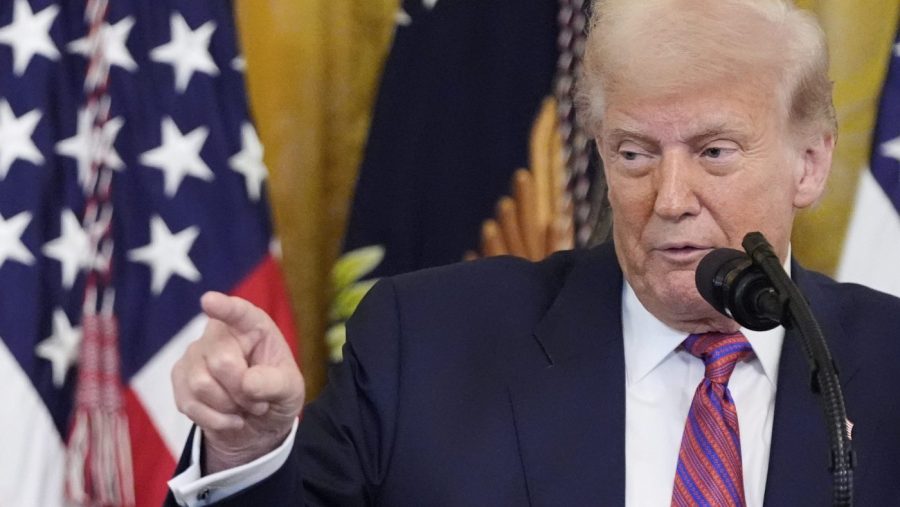
President Donald Trump has emerged as a formidable force within the Republican Party during his second term, significantly shaping legislative priorities and influencing party dynamics on Capitol Hill. His ability to consolidate power has led to swift legislative victories, including the passage of his ambitious domestic agenda, which he refers to as his “big, beautiful bill.” This has been accomplished in a climate where dissent among Republicans is often met with threats of primary challenges, a tactic Trump has utilized effectively through his social media platform, Truth Social.
Since taking office for the second time, Trump has successfully secured the confirmation of 96 civilian nominees, marking the fastest pace in cabinet appointments in two decades. According to the Brookings Institution, the speed of these confirmations outstripped that of three of the last four administrations, demonstrating Trump’s influence over Republican lawmakers. The Senate’s approval of his nominees has been characterized by a notable lack of opposition, even amidst concerns about some of his policies.
Trump’s political leverage extends beyond appointments. He exerted pressure on key figures within the party, including Speaker Mike Johnson, and played a pivotal role in the leadership elections, effectively steering the party’s direction. His recent legislative achievements include the first rescissions package passed by Congress since 1992, a feat he attempted but failed to accomplish during his initial term in 2018.
A culture of fear appears to pervade Republican ranks. Some members have expressed concerns about Trump’s controversial actions, including his global trade positions and partnerships with figures like Elon Musk. Yet, resistance to Trump’s priorities is minimal. One Republican senator, speaking anonymously, highlighted that many within the party view Trump’s initiatives as untouchable, despite private misgivings about specific allocations, such as the $40 million earmarked for the “Garden of Heroes.”
“It’s sickening how we did not challenge,” the senator remarked, reflecting the pervasive sense of compliance among party members. He noted that the White House budget office is effectively dictating Congressional spending decisions, leaving lawmakers feeling like they are simply executing directives rather than participating in the legislative process.
In terms of public perception, Trump’s approval ratings have seen a decline, and dissatisfaction among his core supporters is evident, particularly regarding the handling of sensitive matters like the Jeffrey Epstein-related files. Nevertheless, he faces no substantial opposition within Congress, underscoring his dominance.
Political analysts observe that Trump’s unique approach to wielding influence includes an unmistakable readiness to threaten retribution against those who oppose him. Stephen S. Smith, a political science professor at Washington University in St. Louis, emphasized that Trump’s methods have created a climate where lawmakers are reluctant to challenge him. “Members of Congress are leery about opposing him because he’s promising retribution,” Smith noted.
Republican Senator Tommy Tuberville echoed this sentiment, asserting that Trump has more influence now than any president in his memory. Tuberville warned his colleagues to align with Trump or risk facing primary challenges in the upcoming 2026 elections. His statement, “If you’re not on the team, get out of the way,” encapsulates the pressure felt by those who might consider dissent.
The swift passage of Trump’s legislative initiatives, such as the One Big, Beautiful Bill Act, which was celebrated by Republican senators at a White House dinner, further illustrates his command over party loyalty. Tuberville admitted he initially doubted the feasibility of getting the bill passed by the July 4 deadline Trump set, yet it was accomplished in record time.
Senator Thom Tillis faced severe backlash after expressing reservations about Trump’s agenda. Following public criticism from Trump on social media, Tillis announced he would not seek reelection, demonstrating the potential consequences of defying the president. Tuberville remarked on Tillis’s situation, indicating that crossing Trump can effectively end a political career.
Despite some internal dissent, Republican lawmakers have largely complied with Trump’s demands, including the recent approval of his rescissions package after he threatened to withdraw endorsements from those who opposed him. Ross K. Baker, a political science professor at Rutgers University, suggested that Trump’s approach may be unprecedented in modern political history, likening his influence to that of Franklin D. Roosevelt.
The Senate’s rapid confirmation of Trump’s controversial nominees, including Pete Hegseth, Tulsi Gabbard, and Robert F. Kennedy Jr., speaks to the party’s alignment with the president, even in the face of significant reservations. Senators who initially questioned nominees found themselves compelled to support them after pressure from Trump’s loyalists.
As Trump continues to navigate the complexities of governance, his ability to command loyalty through a combination of legislative success and the threat of retribution stands as a defining feature of his presidency. The implications of this power dynamic will likely shape the Republican Party and American politics for the foreseeable future.







